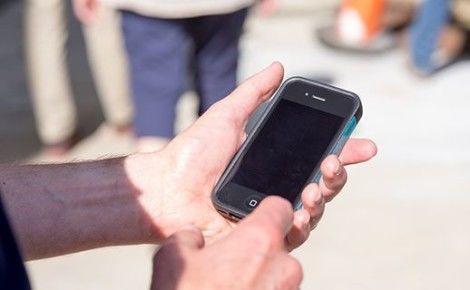For immediate release: September 7, 2015
Boston, MA ─ A new study led by researchers at Harvard T.H. Chan School of Public Health finds that mobile phone records can be used to predict the geographical spread and timing of dengue epidemics. More people around the world are becoming vulnerable to this deadly virus as climate change expands the range of the mosquito that transmits dengue and infected travelers spread the disease across borders. Utilizing the largest data set of mobile phone records ever analyzed to estimate human mobility, the researchers developed an innovative model that can predict epidemics and provide critical early warning to policy makers.
The study appears online September 7, 2015 in PNAS.
Dengue is the most rapidly spreading mosquito-borne disease worldwide. Infection can lead to sudden high fever, bleeding, and shock, and causes significant mortality.
The researchers analyzed data from a large dengue outbreak in Pakistan in 2013 and compared it to a transmission model they developed based on climate information and mobility data gleaned from anonymized call records. Data from approximately 30 million mobile phone customers was processed in collaboration with Telenor Research and Telenor Pakistan, with the call records being aggregated and anonymized before analysis within Pakistan.*
The results showed that the in-country mobility patterns, revealed by the call records, could be used to accurately predict the geographical spread and timing of outbreaks in locations of recent epidemics and emerging trouble spots.
“Accurate predictive models identifying changing vulnerability to dengue outbreaks are necessary for epidemic preparedness and containment of the virus,” said Caroline Buckee, assistant professor of epidemiology, and the study’s senior author. “Because mobile phone data are continuously being collected, they could be used to help national control programs plan in near real time.”
Amy Wesolowski, postdoctoral research fellow, was lead author of the study.
Amy Wesolowski is funded by a James S. McDonnell Foundation postdoctoral fellowship. Maciej F. Bonid is supported by Wellcome Trust Grant 098511/ Z/12/Z. Caroline O. Buckee, Wesolowski, and Michael A. Johansson were supported by the Models of Infectious Disease Agent Study program (Cooperative Agreement 1U54GM088558).
“Impact of human mobility on the emergence of dengue epidemics in Pakistan,” Amy Wesolowski, Taimur Qureshic, Maciej F. Bonid, Pål Roe Sundsøy, Michael A. Johansson, Syed Basit Rasheed, Kenth Engø-Monsen, and Caroline O. Buckee, PNAS, online September 7, 2015, doi: doi/10.1073/pnas.1504964112
*This sentence was updated on September 9, 2015.
Visit the Harvard Chan website for the latest news, press releases, and multimedia offerings.
For more information:
Marge Dwyer
mhdwyer@hsph.harvard.edu
617-432-8416
Photo: Craig LaPlante
###
Harvard T.H. Chan School of Public Health brings together dedicated experts from many disciplines to educate new generations of global health leaders and produce powerful ideas that improve the lives and health of people everywhere. As a community of leading scientists, educators, and students, we work together to take innovative ideas from the laboratory to people’s lives—not only making scientific breakthroughs, but also working to change individual behaviors, public policies, and health care practices. Each year, more than 400 faculty members at Harvard Chan School teach 1,000-plus full-time students from around the world and train thousands more through online and executive education courses. Founded in 1913 as the Harvard-MIT School of Health Officers, the School is recognized as America’s oldest professional training program in public health.
